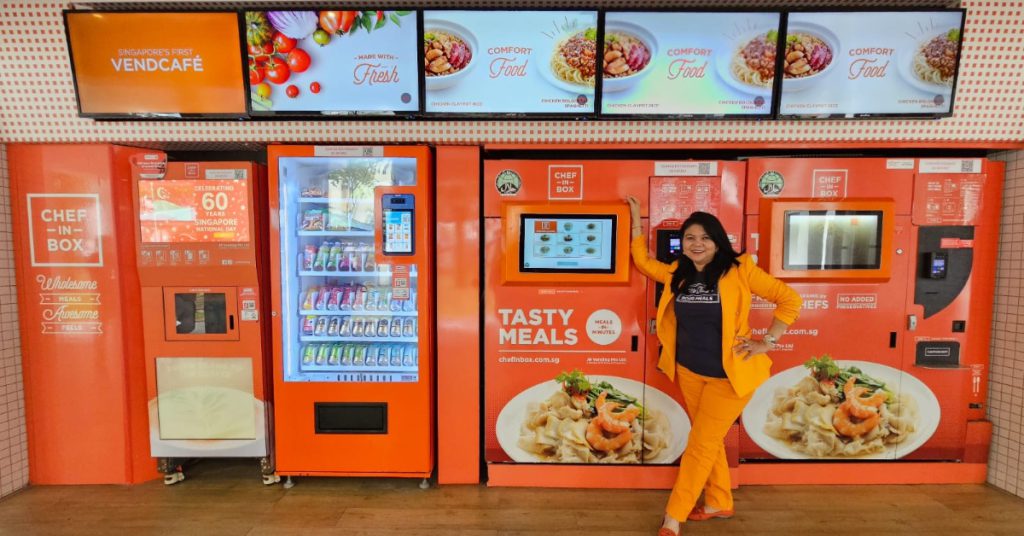The word “culture” has always fascinated me.
Ever since my consulting days, when it was a “must-have” word in any organisational plan, to the days when we were building the foundations of the Recommend.my team, I’ve asked myself, “What the heck is this thing I’m supposed to be building”?
People talk about culture all the time, but does anyone really know what it means?
I did what every well-trained management consultant did—I checked Google, Wikipedia and HBR.
“Culture is how organisations ‘do things’.”
– Robbie Katanga
“Organisational culture defines a jointly shared description of an organisation from within.”
– Bruce Perron
“There are four types of organisational culture: Clan, Adhocracy, Market, and Hierarchy”
– Robert Quinn, Kim Cameron

Wow! So many words and pictures, but I’m even more confused than before!
I think the problem I was facing, personally, is that the definitions above sounded inspirational but didn’t give me clues about how to build a good culture.
But then I came across a definition that made more sense:
“Organisational culture is the sum of values and rituals which serve as ‘glue’ to integrate the members of the organisation.”
– Richard Perrin
We really liked that definition. So my co-founders Alex, Anthony and I—we went about defining our values as an organisation.
We had slides with big bold words like “Integrity” and “Respect” and “Ownership”.
We spent some weeks defining them, refining them, and to this date they’ve never seen the light of day.
Why?
Because we had no idea how to implement them. How do you implement “Integrity”? Praise the team every time they did not over-sell to clients? Slap them on the wrist if they exaggerated sales projections? We had no idea.
So we tried to implement rituals and behaviours. Here are some things we tried:
1. The Success Bell
We bought a big silver bell, and called it the “Success Bell”.
After every success (e.g. hitting a key milestone, making a big sale) I would run out to find the “Success Bell”, and ring it like crazy and announce the good news, while the person who achieved the result sat there red as a tomato and wishing the earth will open up and swallow her.

But no one else picked up on it, and over time I got tired of being the only one who was ringing the “Success Bell” and gave up. It just didn’t feel natural.
2. “Everyone Must Contribute”
We implemented a “Every person must contribute” rule which states that every person, no matter how new or junior, needed to contribute in meetings, otherwise they will not be invited to the next one.
This forced everyone to say something (whether they had anything useful to say or not) and this resulted in thoughtless opinions and half-baked ideas that derailed our meetings.
###
So we kind of gave up on building the “culture” and decided to focus on building our business instead. We started hiring people who we thought were aligned with what our tiny little startup was trying to achieve.
We did not focus on Ivy League degrees, or time spent hanging about the Valley (because honestly we couldn’t afford these guys). We hired people who cared about the problem we are solving.
We hired this girl because she was humble, unassuming, smart, thoughtful and respectful of others.
We hired this guy who did not have a degree, but had a passion to leave the world a better place.
We hired this person who somehow can find a way to deliver anything you asked.
We hired this bubbly girl who could always make everyone laugh even in tense situations.
We hired a people-person who announced “I am so happy in this job” after Week 1, and she began to organise so many team events it felt like she has been around forever.
And suddenly, the team blossomed into life. People began to talk, really talk, argue, debate, break things, fix things, create things.
The team began to brainstorm about how to improve our company during lunch, even when management wasn’t around to be impressed. We began to celebrate birthdays, anniversaries, milestones, happy things, sad things.
People began to REALLY know each other, not just where they were from but what their hopes, dreams and fears in life. Half the team were from outside KL, and if our car got broken in, the first people we called were from Recommend.my team.
It began to feel like a family. In my nearly 10 years of working, I’ve never felt so much as part of a family like this one.
So what exactly, is our culture? Let me describe it as a list of things we ARE and DO.
We are:
1. A team that helps people find great services at the key moments of their lives. We understand what they need, and we find them service professionals who can create a wonderful experience, product or place for them.
2. Ordinary people, wanting to do extraordinary things. We don’t have Ivy League degrees, some of us don’t even have degrees. We come from humble backgrounds, some of us are the first in our families to hold a steady job.
3. Really kiamsap (or at least, I am). We don’t have bean bags, a pool table, catered lunches, because the company simply cannot afford it. We only bought a microwave when we won a RM 100,000 award from Alliance Bank (before that, we boiled water in a kettle for our pot noodles).
We do:
1. Love working and hanging out with each other. We have steamboat dinners together, practise yoga every Wednesday and play badminton every Thursday.
2. Joke and make fun of each other. We play tricks on each other, and turn off the light when someone is in the loo. We play Nerf guns in the office. We re-arrange and “decorate” the things on each others’ tables. We try to be respectful of differences, but really nothing is taboo and the things we talk about openly will surprise you.
3. Cook meals at home and bring them to the office to share, just like old aunties at a reunion dinner. Some days, we even have old winter melon soup.

4. Learn from each other. We have Friday Brown Bags where we learn from each other interesting, random things like risk management, how to race in F1, how to deal with autistic children. We think everyone is good at something, and we want to learn from everyone.
5. Truly, truly believe that our startup is positioned to change and transform services in South East Asia. We see the customers we helped, the pros whose lives we make better, and we feel a sense of gladness. We make mistakes, we’re not fast or courageous enough sometimes, but we are getting closer and closer everyday. We can feel it in our bones.
Did we, the leaders, build this “culture”? While it’s true that these rituals came about because we hired people who were consistent with our values, it was THEM who built the rituals.
No one accepted my Success Bell thing, but today when we have a success, everyone knows and cheers about it.
There are STILL people who don’t speak openly during meetings despite my threats, but they will approach me privately after the meeting with a well thought-out idea that would be mind-blowing.
So why should we force them to contribute only in a way I am used to? Why can’t we create an environment where people with all styles can contribute?
I just needed to learn that everyone works in different ways, and the role of leadership was to build a “culture” that the right people can thrive in, and not define the right way everyone should work.
While I wouldn’t say that all organisations are the same, this has been our experience in building a “culture” that works for us. So throw away that bean bag brochure, and start thinking about what values you need in the people you hire.
Our culture is not perfect or ideal, but it’s an environment that feels like we’re working towards something as a family. Perhaps that’s all that matters.














